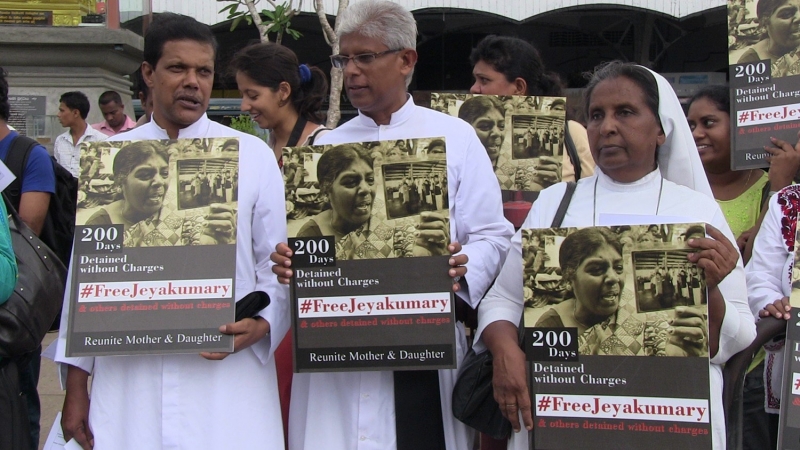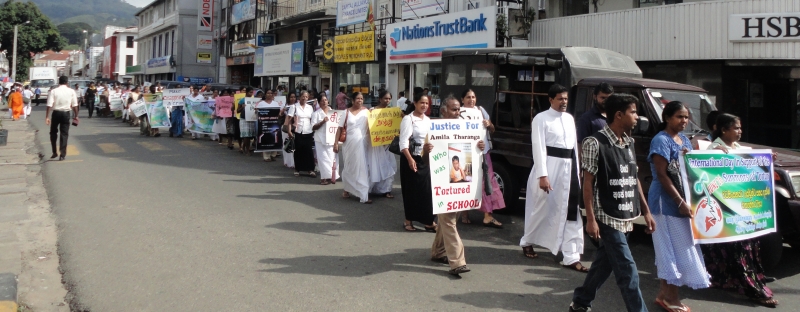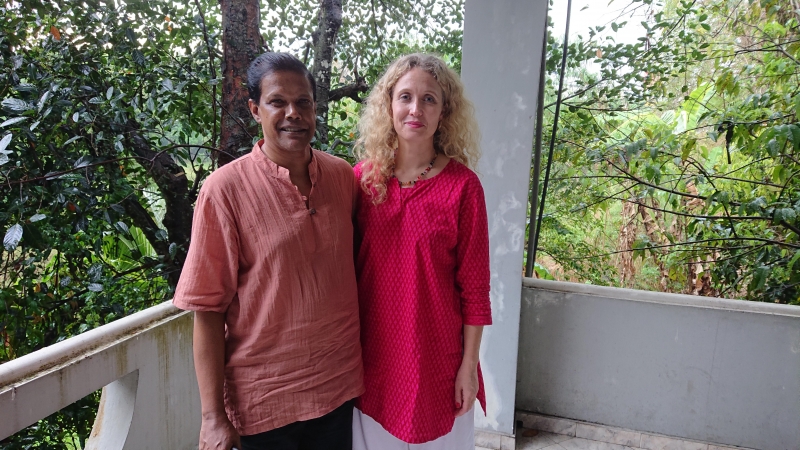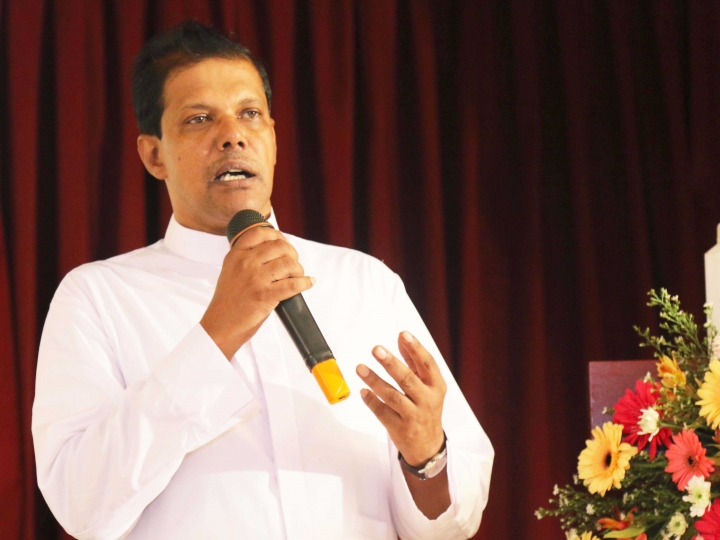As a very young priest I saw how the security forces killed thousands of young people in broad daylight. They were suddenly picked by the armed forces and detained. I went in search of them … it was the beginning of my human rights work.
In the very second year of my priesthood, the JVP youth insurrection led to unfortunate incidents occurring during the 1988-89 period, and over 60,000 people, including those who did not have any connections with the JVP, were killed or made to disappear by security forces and paramilitary groups who operated with the blessings of the then government.
Arrests, torture and killings
I saw so many young people being arrested, almost every day, being brutally tortured and killed and their bodies either burnt or thrown into the river. I had to visit several police stations and army camps in search of the arrested youth, to get them released. Security and protection had to be provided to the youth who were searched by the security forces. Once when I was traveling alone in my vehicle, a man suddenly stopped me and got into the van and asked me to speed. The stranger got off at a bus stop and told me that he had been taken to the cemetery to be shot, but that he had managed to escape.

Having seen the tears of the mothers and family members of torture victims, I was compelled to go beyond the cultic role of the priest to broaden my pastoral ministry to defend and protect the vulnerable that were subjected to torture and inhuman degrading treatment and punishment.
Moral leaders
I was convinced that the priests and religious are also moral leaders and we believe that God created mankind in his own image and likeness and that we are equal and share the same dignity. Hence since year 2000 we have empowered more than 125 priests and religious to commit them to work against torture and to protect, promote and safeguard the rights of the poor, the discriminated, and the marginalized of the society. We have formed the network “Priests and Religious for Human Rights” (PRHR).
Inspired by the families of the disappeared and the victims of torture and rape, I journey with them in search of justice and redress. For the past 20 years I have provided them security, protection, legal, medical and psychological assistance to regain their lost dignity. To achieve this goal, the Human Rights Office was set up, with a support group of more than 35 members, both professionals and civil society activists. Several torture victims were provided security and protection, legal, medical and psychological assistance for more than 15 years, until the adjudication process was completed. So far, we have assisted around 128 victims of torture to receive justice and redress.

A historical day
July 28th, 2015 was, to me personally, a historical day, as one of our torture victims Rohitha Liyanage activated the Torture Act no 22 of 1994 after a long interval without use. No torture perpetrators from the police or armed forces were indicted nor sentenced during the previous regime from 2005-2015 as a reward for assisting the armed forces during the civil war.
The legal machinery was once again activated when the two accused police officers who severely tortured Rohitha on the 28th July 2005 were sentenced to 7 years rigorous imprisonment by the Kandy High Court Judge on the 3rd of December 2015.
Jesudasan Rita, a schoolgirl, also secured a historical judgment in 2015 when two perpetrators were sentenced to 23 years' imprisonment for abduction and rape in 2001.

I have had to face threats from police and other rights violators and have had to navigate criticism and skepticism from some fellow priests and church leaders since [...]
I have had to face threats from police and other rights violators and have had to navigate criticism and skepticism from some fellow priests and church leaders since I challenged them to be more active in fighting abuses.
I dedicated the award which I received in 2018, the Gwangiu Prize for Human Rights, by the May 18 Memorial Foundation in South Korea, to the victims and survivors of torture and rape.
The NHRF invites different actors within the human rights field to contribute on this blog. The opinions expressed here are those of the authors.

